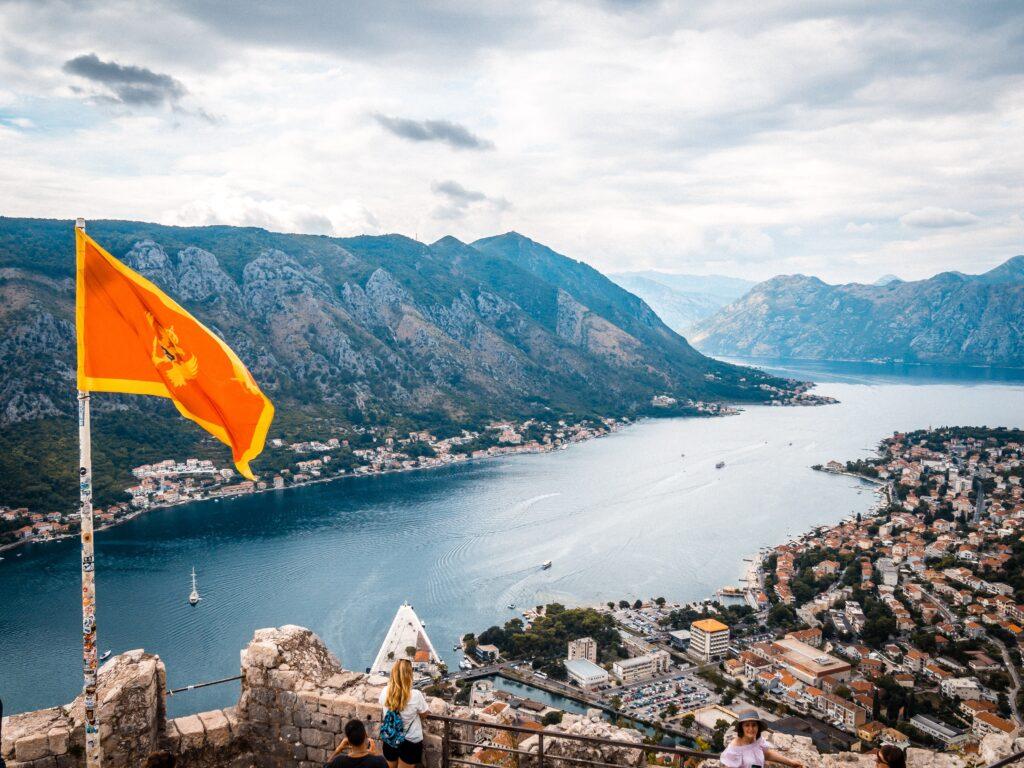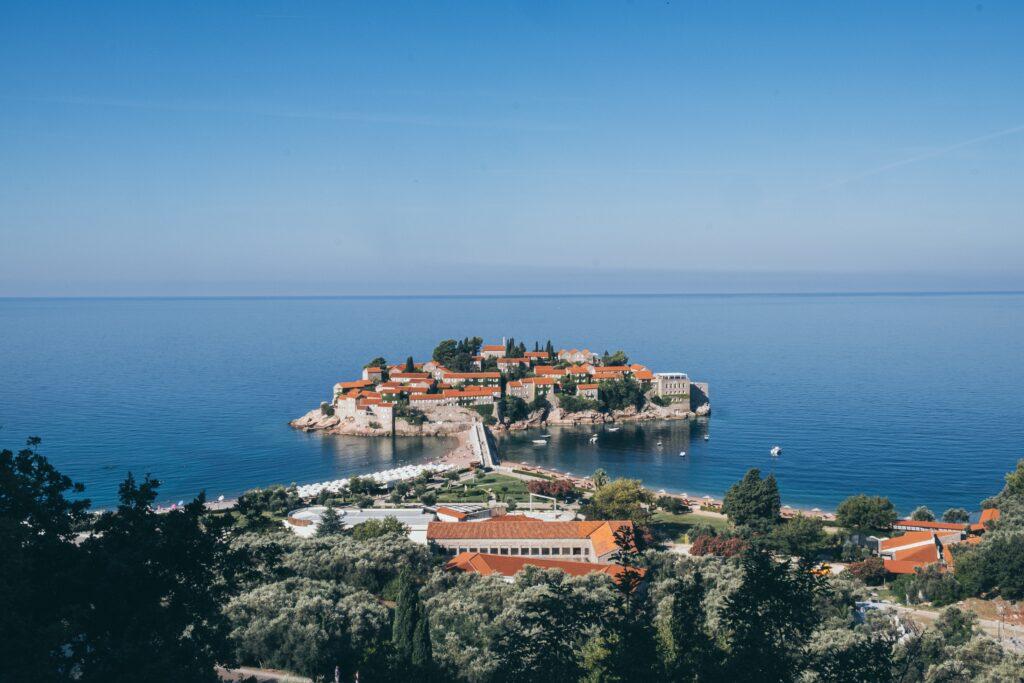Montenegro tax residency is a topic I get questions about from time to time.
This is no surprise as Montenegro does offer stunning nature and a good quality of life.
Need help with your tax setup as a digital nomad? Reach out!
Overview of Tax Residency in Montenegro
- Maximum personal income tax of 15%
- Flat tax rate for investment income of 15%
- Relative low social contributions both for employees and freelancers
- Corporate income tax ranging from 9% to 15%
- Necessary to spend 183 days in the country to become a tax resident in first instance

Taxes in Montenegro
Let’s now have a closer look at the different taxes you need to take into account if you get Montenegro tax residency.
Personal Income Tax
You will need to declare your worldwide income in Montenegro.
Montenegro applies three brackets for professional income:
- < EUR 8.400: tax-exempt threshold
- EUR 8.400 – 12.000: 9%
- > EUR 12.000: 15%
On any other income (e.g. investments) a fixed tax rate of 15% applies.
In addition to this federal tax rates, also local surtaxes apply. The rate of the surtax depends on the municipality you live in.
Social Contributions
The social contributions you have to pay in Montenegro depend on your professional status.
If you work as an employees, the social contributions are split between the employer and employee.
Employer:
- Pension & disability: 0%
- Unemployment insurance: 0,5%
- Other: 0,67%
Employee:
- Pension & disability: 10%
- Unemployment insurance: 0,5%
The maximum contribution basis for employees on which these contributions apply is approximately EUR 69.000.
For self-employed individuals the contributions are the following:
- Pension & disability: 10%
- Unemployment insurance: 1%
Yet, freelancers don’t pay the social contributions on their income or profit.
Nevertheless, the calculation takes into account your annual revenue.
- Revenue up to EUR 30.000: fixed lump sum payments
- Revenue up to EUR 60.000: pay contributions on 100% of the average gross salary
- Revenue above EUR 60.000: pay contributions on 150% of the average gross salary
The annual average gross salary at the time of writing amounts to EUR 14.424.
Accordingly, you would pay around EUR 2.400 in social contributions as a freelancer with an income above EUR 60.000 (EUR 14.424 x 150% x 11%).
Corporate Income Tax
As more and more bureaucracy is getting involved in operating a business in a personal name, Montenegrin taxpayers often decide to set up a company.
Also for companies, a three-tier regime applies:
- < EUR 100.000 of profit: 9%
- EUR 100.000 – 1.500.000: 12%
- > EUR 1.500.000: 15%
These tax rates are definitely some of the lower ones around Europe.
However, when working with a company, you should also think about the withholding tax. You pay withholding tax once you take out profit of the company as a dividend. The basic withholding tax rate is 15%.
Requirements for Obtaining Tax Residency
You will qualify as a tax resident in Montenegro if you spend 183 or more days there during the calendar year.
Nevertheless, even if you spend less days in the country, you can still qualify as a Montenegrin tax resident. This will be the case if you have your domicile or your centre of vital interests in the country.
In practice, we have noticed that the Montenegrin tax authorities will only start considering you as a tax resident if you have a legal residence permit and actually spend more than 183 days in the country.
So, in order to become a tax resident in Montenegro you do need to spend the majority of the (first) year in Montenegro.
How to Get Tax Residency in Montenegro
Let’s now have a closer look at the different steps to get tax residency in Montenegro.
Get Residency Permit
The first step in the process is to get a residency permit so you can actually legally stay long-term in the country.
In this way, you can secure your stay there and make sure you can meet the requirements for tax residency.
Furthermore, you will need a legal residency permit to be able to register yourself with the tax authorities later on in the process
Meet Requirements for Tax Residency
The next step to get Montenegro tax residency is to meet the requirements for tax residency.
You can either:
- Spend 183 days in the country in a calendar year;
- Have your center of vital interests in Montenegro.
Yet, in order to qualify as a tax resident for the first time, you will actually have to spend the 183 days in the country. Only after that you can keep your tax residency by maintaining your center of vital interests in the country.
Tax Office Registration & Compliance
Now you can register with the Montenegrin tax authority by contacting the local tax office of the municipality you live in.
After registration, you are ready to file your tax returns in Montenegro.
This also means you can apply for a tax residency certificate to avoid double taxation with the help of double taxation treaties.

Tax Considerations about Montenegro for Digital Nomads
Setting up tax residency in Montenegro for digital nomads can work out if you pick the right setup.
It looks interesting from a tax point of view to register yourself as a freelancer in Montenegro.
Yet, still many people complain about the bureaucratic process and administration linked it.
Furthermore, you will fairly quickly end up in the highest tax bracket of 15%.
Therefore, many people do actually opt to open a company.
Setting up a company is a way to benefit from the lower (corporate) tax rates in Montenegro. Yet, in this case you have to account for withholding tax on dividend distributions. This will bring your overall tax burden to around 24%. This is a decent rate for a country on the European continent.
Yet, the fact that Montenegro is not part of the European Union means that the financial infrastructure is often limited. This can be a burden if you operate internationally.
How is Montenegro for Digital Nomads?
- Cost of living: the cost of living in Montenegro is way lower than in many Western European countries.
- Nature: Montenegro is home to great mountains, cliffs and national park. Furthermore, it’s located at the beautiful Adriatic Coast.
- Stable internet: expect stable and speedy internet in cities. Yet, in remote mountain villages your connectivity might be a bit more limited.
- Community: growing digital nomad communities in Kotor Bay and Tivat.
- Digital nomad permit: Montenegro does offer a specific visa for digital nomads and remote workers.
Work With Me
As a digital nomad or remote worker, understanding your tax obligations across different countries is essential to stay compliant and optimize your finances.
I help remote professionals navigate tax residency rules, manage cross-border taxation, and structure their international tax affairs efficiently.
Contact me today to make your global lifestyle smoother and tax-smart.
